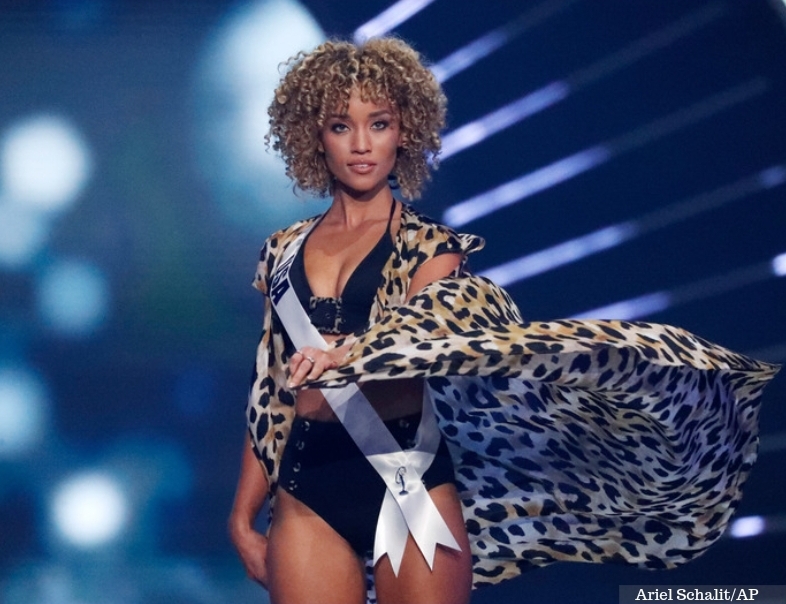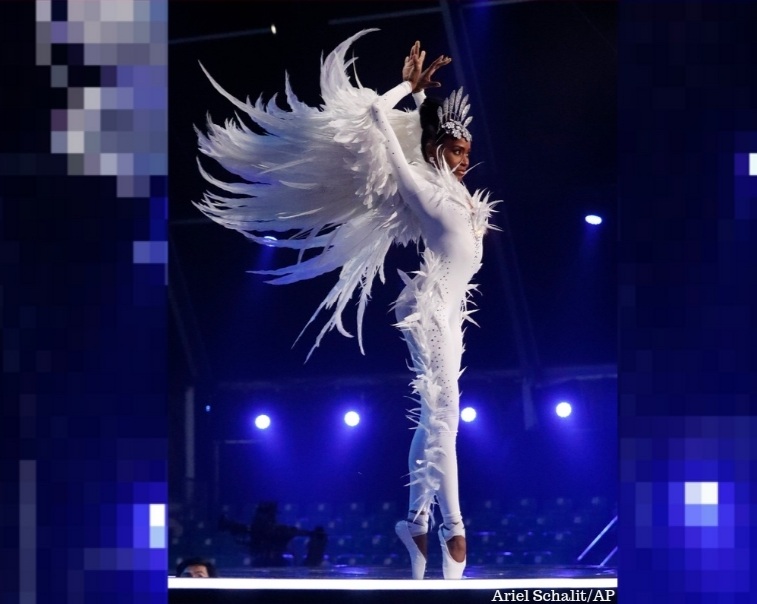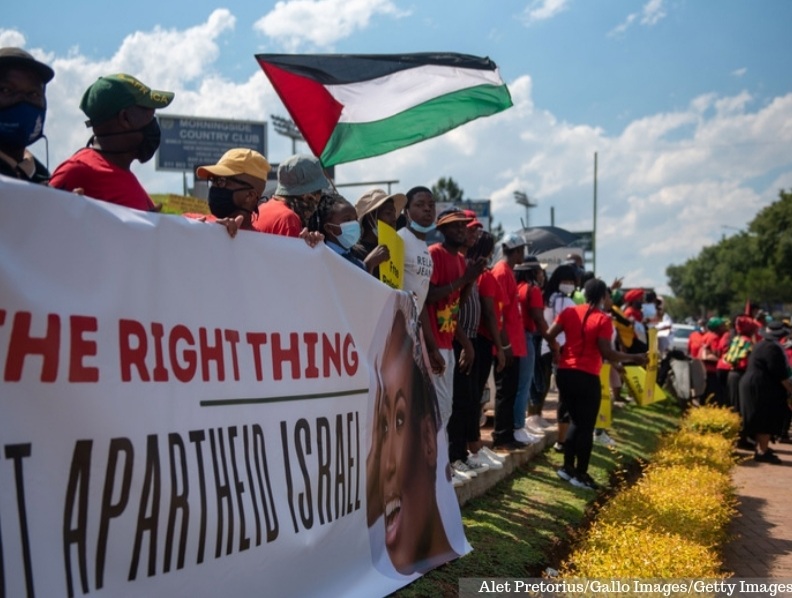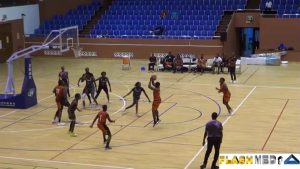Editor’s Note: Barbados did not take part in the 2021 edition of the Miss Universe contest.
(CNN) — The sparkling Red Sea has some competition this weekend.
A sea of 80 women, competing for the glittering Miss Universe crown, has taken over the southern Israeli resort city of Eilat with all of their stilettos and sequins.
On arrival, the venue — Eilat’s port — doesn’t seem nearly as glamorous as the women inside. But walk inside the 4,000-seat, specially built tented stage imported from Portugal, and the atmosphere quickly changes.
On the Friday before the Sunday night competition, the contestants were starting the day with dress rehearsals, first in their sequined opening outfits, then in their swimsuits and, finally, in their evening gowns. They dash between the figure-eight stage and the empty seats strewn with blankets to keep them warm in between rehearsals, many holding platform shoes in one hand and a mask in the other.
Later on in the evening, they’ll compete in the preliminary “National Costume” event, with costumes ranging from a shiny Canadian Mountie with black lace pants and knee-high boots (“she’ll be sure to keep us secure,” the host croons) to a lunar dragon, replete with two dragon heads.
But while the women try to capture the spotlight of the pageant’s stage during the preliminaries ahead of Sunday’s main event, politics and coronavirus are pushing them into a different kind of spotlight.
A Covid-era crown
Sunday’s competition will be the second Covid-era Miss Universe. Initially Israel’s borders were set to be open to immunized tourists ahead of the main event, meaning thousands of superfans around the world would have the opportunity to attend.
But as news of the Omicron variant emerged, the Israeli government swiftly shut its borders to foreign nationals two weeks before the competition, adding extra complications.
One contestant, Miss France, Clemence Botino, tested positive for Covid-19 when she landed in the country and was sent to a hotel quarantine — threatening her participation. Luckily, she got out just in time for the preliminary competition on Friday.
“This year being in Israel added new challenges as we had to stay up to date on which vaccines would be accepted, the travel and quarantine days,” said Meg Omecene, Miss Universe’s Director of Communications.
All staff and contestants had to be fully vaccinated within six months in order to come. They are also being tested on site every 48 hours in a special tent and must wear masks at all times when not on stage.
“It’s been a pretty rigorous Covid production but we’re all here and getting excited for Sunday,” Omecene added.

Miss USA, Elle Smith, told CNN she’s found Israel’s Covid measures to be much “stricter here than in the States in regards to protocol so I feel like we’re taking any necessary precaution to hold an event like this.”
Politics threatens to outshine the pageantry
As with previous international events hosted in Israel, like 2019’s Eurovision Song Contest, just the fact such a major media event is taking place in the country has drawn criticism and calls for boycotts.

The South African government withdrew its support and called on Miss South Africa, Lelela Mswane to drop out, citing Israeli treatment of Palestinians, calling it “apartheid,” a charge Israel has vehemently denied.
“If anything, by withdrawing, Miss South Africa’s reputation and overall standing will be far more advanced in South Africa and internationally in comparison to a once-off event that can prove disastrous to her future and public standing as a young, black woman,” South Africa’s minister of sports, art and culture Nathi Mthethwa said in a statement last month.
But Mswane — with the backing of the Miss South Africa organization — did not bend to the pressure, choosing to travel to Israel and compete.

“If I had not come to Israel to compete in the Miss Universe pageant, I think I would have regretted it for the rest of my life,” she told the Jerusalem Post on Thursday. “Certain people have put me through hell and back. It has not been the easiest thing to deal with … But I choose to be optimistic.”
Others appeared to utilize the event for political purposes. Rafaela Plastira, a Greek model and former beauty pageant winner had posted on Instagram that she was “withdrawing” from Miss Universe because she couldn’t “go on that stage and act like nothing is happening,” adding in a later post, “I may not live in Palestine but Palestine lives in my heart forever.” Her statement drew praise from pro-Palestinian activists.
But the official Miss Greece organization quickly clarified that Plastira was not even Greece’s official Miss Universe candidate, saying in a statement the actual Miss Greece is Sofia Arapogianni, who later posed for photos holding both Greek and Israeli flags.
Clad in a sparkly white dress between dress rehearsals on Friday, Miss Israel, Noa Cochva, echoed a common refrain heard from Miss Universe organizers and contestants: Miss Universe should not be about politics.
“It’s about us as humans, as strong women,” Cochva told CNN in between rehearsals.
Regardless of that desire, Cochva acknowledged she faces the double pressure of competing in her home country, while also needing essentially to be Israel’s ambassador — and defender — to the 79 other contestants.
Joking that her roommate, Miss USA, called her the “best tour guide,” Cochva said she has sought to show her fellow contestants a different image of Israel “than what you see on social media.”
On the other end of the spectrum is the new political reality of contestants from countries like Bahrain and Morocco strutting across an Israeli stage, something that might have been unimaginable just a few years ago. The two countries were among four Arab nations to sign historic normalization agreements with Israel last year, paving the way for a flurry of diplomatic, business and cultural activity.
Hoping for a tourism boost
With 80 contestants bringing legions of social media followers along with them as they tour the country ahead of the competition on Sunday, Israeli tourism officials are hoping such publicity will help provide a much needed boost for when the country reopens.
Sara Salansky, a spokeswoman for Israel’s Ministry of Tourism, told CNN they were approached in May about hosting the December competition. The request came as Israel had reached a high vaccination rate and seemed close to reopening, rolling out vaccines faster than most other countries.
“It’s a very good return of investment for the Ministry of Tourism,” Salansky said. “It’s not something that happens every day; when you get an opportunity you have to take it and this is what we did.”
Contributing about 3% annually to Israel’s GDP, tourist numbers before the pandemic were hitting record levels, Salansky said. About 5 million visitors were expected in 2020 before the pandemic hit, she added.
And even though the Israel’s borders are still temporarily closed to foreign nationals over fears of the Omicron coronavirus variant, Salansky said the opportunity to present Israel as a tourist destination to the expected 600 million broadcast viewers around the world will have a long-term impact.
“A lot of people are skeptical about this type of event but when we are looking at it there’s a lot of media and people are talking about it,” Salansky said. “So we’re looking at the positive, to use this event to showcase the positive about Israel.”
That has involved shepherding the 80 contestants up and down the country, from touring Jerusalem’s Old City to riding ATVs in the desert. Some activities, like a “Bedouin experience” day, were slammed by Palestinian activists.
“They don’t boycott apartheid, participate in the competition and then shamelessly appropriate Palestinian culture and symbols of resistance. This is despicable,” tweeted campaigner Salem Barahmeh in response to Miss Philippines’ photos of herself and other contestants in traditional Bedouin garb.
Despite the complications created by Covid-19, the pressures of politics, and of course the questions around the validity of such pageants in the present day, both Smith, the US contestant, and Cochva were adamant Miss Universe has a positive role to play.
“We’re here to empower each other as women,” Smith said. “We’re just enjoying our time together and I think it’s really showing the power of women as a whole and that’s what we’re trying to show on December 12.”





More Stories
Bulls draw level with Celtics in BABA finals
Matthews looking forward to productive 2024 season
BL&P urges motorists to be more cautious